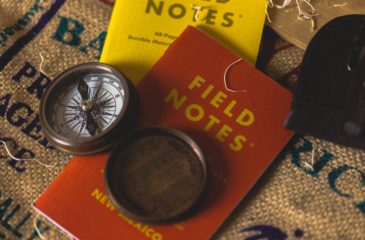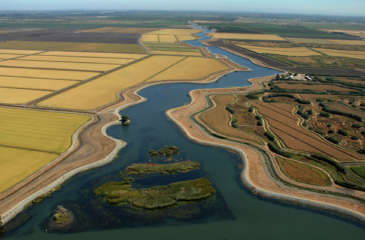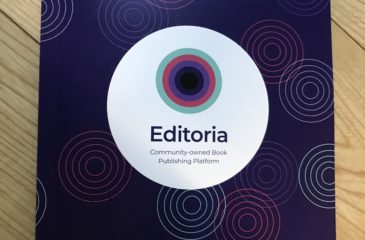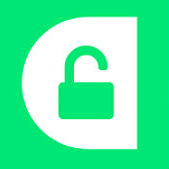UC OSC Blog
-
Comment on proposed UC-wide OA policy for dissertations and theses before April 10
[Editor’s note: this post is kept as an archive, but since the policy is no longer under review, some of the links go to pages that do not exist. For current UC policies, visit policy.ucop.edu.] A second systemwide review window is open for a draft policy on open access to University of California dissertations and theses. The current review period extends to April 10 and all members of the UC community are welcome to submit comments and questions. The draft policy and accompanying documents, including a cover letter and FAQs, are available on the Academic Personnel and Programs website. As explained […]
-
UC and Elsevier – March 2019
Note: this is a copy of the “UC and Elsevier” page on this site as it appeared March 6, 2019, maintained as an archive. March 2021 and October 2019 versions are also available. For current information about UC and Elsevier, see the actively maintained page. UC terminates subscriptions with Elsevier in push for open access to publicly funded research As a leader in the global movement toward open access to publicly funded research, the University of California is taking a firm stand by deciding not to renew its subscriptions with Elsevier. Despite months of contract negotiations, Elsevier was unwilling to […]
-
UC and Elsevier: FAQs
Note: After more than two years of negotiations, in March 2021 the University of California announced a transformative open access agreement with Elsevier. This is a copy of the old “UC and Elsevier: FAQs” page maintained as an archive. For current information about UC and Elsevier, see the actively maintained page. How to Access Elsevier Articles Negotiations with Elsevier Moving Towards Open Access Managing Costs Impact on Faculty and Researchers Expand All | Collapse All How to Access Elsevier Articles Moving Towards Open Access Managing Costs Impact on Faculty and Researchers
-
UC and Elsevier: Why It Matters
This is a copy of the “UC and Elsevier: Why it Matters” page on this site as it appeared in June 2020, maintained as an archive. For current information about UC and Elsevier, see the actively maintained page. Following UC’s break with Elsevier, messages of support from around the world pour in On Thursday, Feb. 28, the University of California announced its separation with Elsevier, one of the world’s largest — and most profitable — publishers of academic research. In the days since, messages of support and congratulations have come pouring in from around the world. Here is a sample of the […]
-
UC terminates subscriptions with world’s largest scientific publisher in push for open access to publicly funded research
This announcement is cross-posted from the University of California Press Room. As a leader in the global movement toward open access to publicly funded research, the University of California is taking a firm stand by deciding not to renew its subscriptions with Elsevier. Despite months of contract negotiations, Elsevier was unwilling to meet UC’s key goal: securing universal open access to UC research while containing the rapidly escalating costs associated with for-profit journals. In negotiating with Elsevier, UC aimed to accelerate the pace of scientific discovery by ensuring that research produced by UC’s 10 campuses — which accounts for nearly […]
-
Transitioning journals to open access: Guidance from and for the field
One key objective of University of California’s Office of Scholarly Communication (OSC) is to coordinate and offer educational resources related to scholarly publishing. On the OSC website, authors can find guides to copyright, open access (OA), research impact, peer review, and more. In real life, OSC members are also “out in the field” at our respective libraries and university presses, offering consultations and support for UC scholars and authors on a multitude of publishing issues. Over the past two years, we have engaged in an increasing number of discussions with journal editors interested in transitioning their journals to open access. […]
-
Academy-owned? Academic-led? Community-led? What’s at stake in the words we use to describe new publishing paradigms
Editor’s note: This blog post is cross-posted from the Library Publishing Coalition (LPC) blog and is LPC’s official contribution to Academic Led Publishing Day (ALPD), a global digital event to foster discussions about how members of the scholarly community can develop and support academic-led publishing initiatives. LPC is participating in ALPD because it presents an opportunity to have a multi-stakeholder discussion about an issue of growing importance to libraries, and to call attention to the lack of a shared vision in this critical area. Our goals in this post are to highlight some of the unresolved questions in this space and to […]
-
UC Davis–Delta Stewardship Council Journal Has Helped Inform California Water Policies for 15 Years
This article was written by Lisa Howard and originally appeared on the UC Davis Office of Research site. When the peer-reviewed journal San Francisco Estuary and Watershed Science launched fifteen years ago, the editors chose what was then a somewhat new model of scientific publication known as “open access.” At that time, most academic journal publishers kept their content behind pay walls, accessible only with expensive subscriptions that were mostly paid by institutions like universities. The sequestered academic content was a big problem when it came to research about the San Francisco Bay-Delta watershed, which includes not only the San Francisco Bay, […]
-
Open Source for Open Access: The Editoria Story So Far
This article is cross-posted from the UC Press Blog. In 2014, UC Press and the California Digital Library were awarded a grant from the Andrew W. Mellon Foundation to build a digital book production system, which has now become known as Editoria. The vision behind Editoria was to build a digital book production that would help non-profit publishers of all stripes more efficiently manage the production of monographs. Part of the motivation behind the development of Editoria was to help ease the cost burden for publishers wishing to publish open access books. At the time, UC Press had recently launched […]
-
Open Alternatives to Subscription Content
The University of California Libraries are committed to seamlessly connecting UC faculty, students, and staff with research collections. While established tools such as UC-eLinks for paywalled/subscription literature and Request Interlibrary Loan Service for unsubscribed content have been connecting readers with scholarly content for decades, a range of new tools have emerged in recent years to improve access to and discovery of both subscription and open access (OA) publications. Paywalled content requires subscriber authentication or pay-per-view for unsubscribed content, whereas OA content is freely accessible to all readers. While the majority of scholarly publications are still published behind a paywall, the […]







